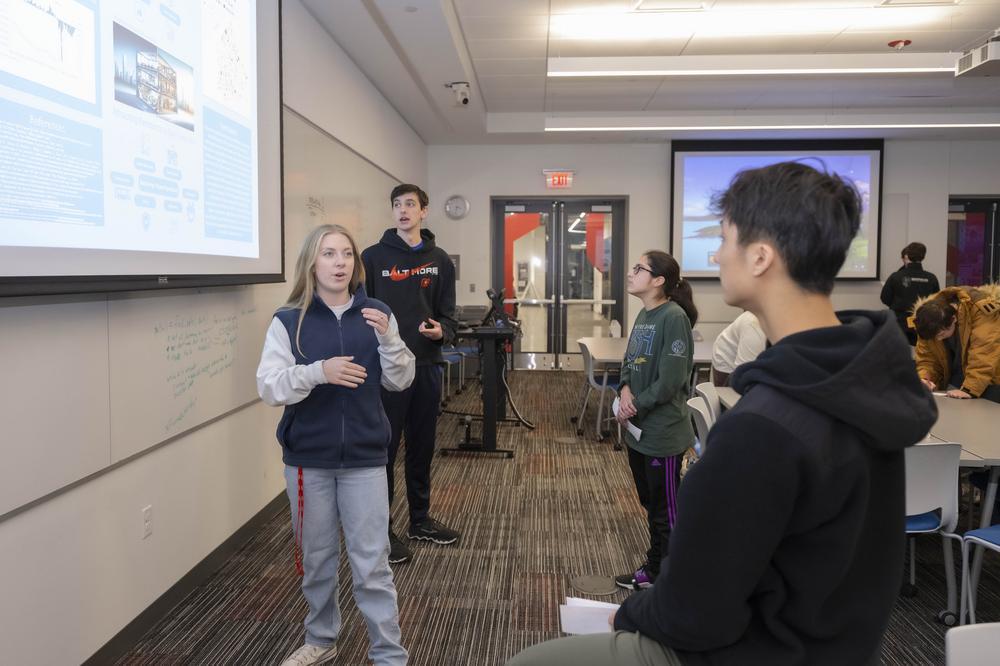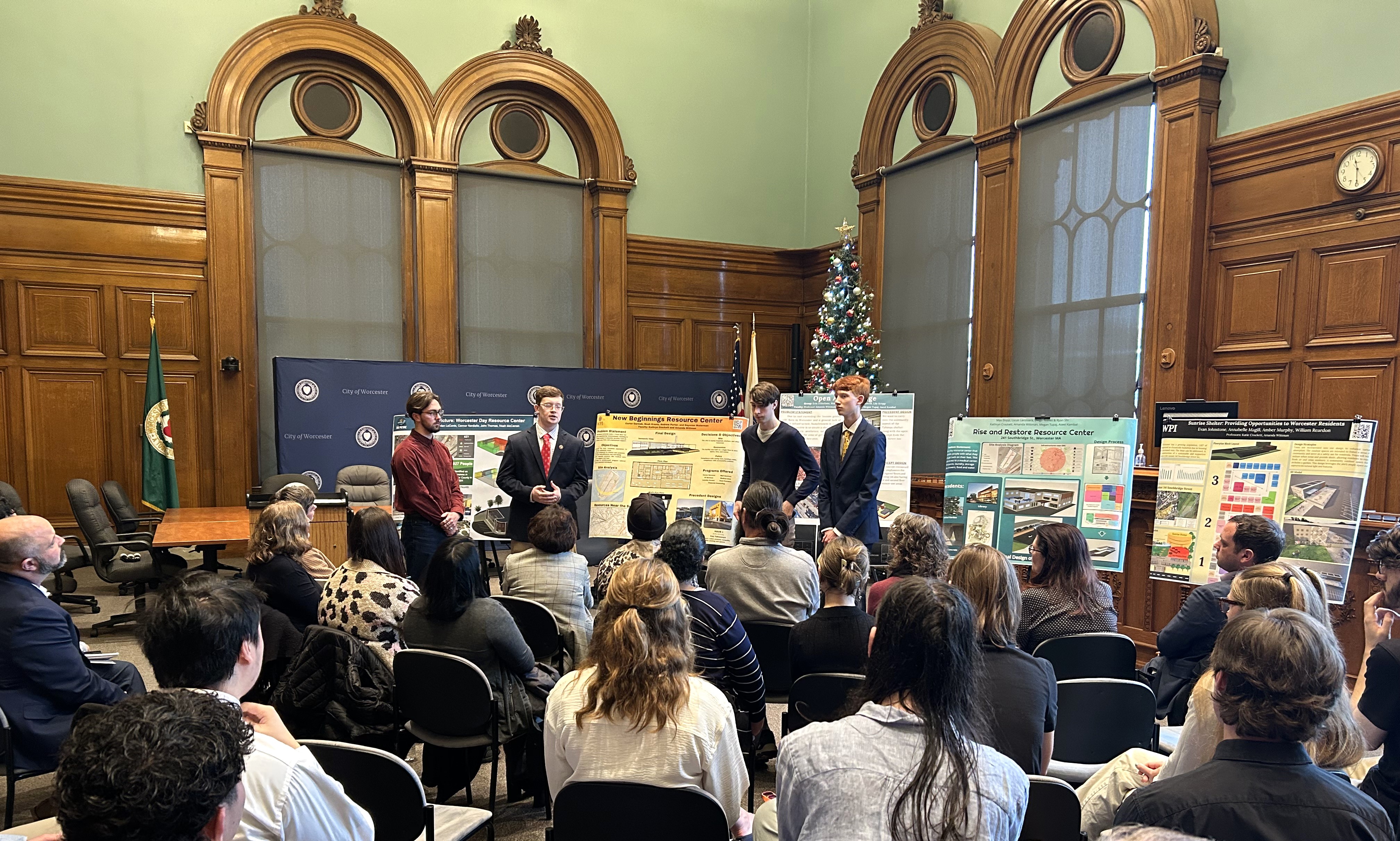Eric Hahn, a 1980 WPI graduate and partner of the Inventures Group in Palo Alto, Calif., has given the university a $100,000 gift to help fund a new approach to WPI’s first-year experience, one that will serve as an introduction to university-level research and project work. Hahn’s grant will begin the transformation of the first-year experience for students at WPI as it enables the university to offer the "Great Problems Seminars." These unique programs will take problem solving out of the textbook and into the "real world" by focusing on themes of current global importance, including societal problems and human needs.
WORCESTER, Mass. – Worcester Polytechnic Institute (WPI) has announced that Eric Hahn, a 1980 graduate of WPI and partner of the Inventures Group in Palo Alto, Calif., has given the university a $100,000 gift to help fund a new approach to WPI’s first-year experience. Hahn’s grant will begin the transformation of the first-year experience for students at WPI as it enables the university to offer the "Great Problems Seminars." These unique programs prepare WPI students by providing them with a global focus as they embark on their project-driven coursework.
The Great Problems Seminars will serve as an introduction to university-level research and project work. The seminars will take problem solving out of the textbook and into the "real world" by focusing on themes of current global importance, including societal problems and human needs. A team of four WPI faculty members are developing two Great Problem Seminars for next year:
- Feed the World is built around a sequence of projects that are tied to food. It is being developed by a chemist (Professor Kristin Wobbe) and a humanist (Professor Rob Traver). Topics will range from the chemistry of nutrition to the ethics of price supports and fair trade.
- Power the World focuses on various forms of energy resources and the history of their technologies. This seminar is being developed by a mechanical engineer (Professor Brian Savilonis) and an historian (Professor David Spanagel). Course topics will connect the physics of energy sources such as oil and water to their political and social implications.
"WPI is already recognized as a model of innovation in undergraduate education, and the generous and insightful gift given by Eric Hahn will take the WPI learning experience to an even more engaging level for our students," said Arthur Heinricher, associate dean for the First Year Experience at WPI. "For more than 30 years, members of WPI’s junior and senior classes have applied the knowledge they learn in the classroom by solving important, real-world problems through the university’s project-based curriculum. Now, thanks to Mr. Hahn’s gift, WPI will be able to extend that opportunity to first-year students. That’s a huge benefit to the student, and to the global community that these students are learning to serve."
As a requirement for graduation from WPI, students must complete two projects in addition to their course work. Undertaken in the junior and senior years, these projects provide WPI students with opportunities to apply classroom and lab-acquired knowledge to solve real-world problems. Student projects are managed either on or off campus, and often take place at sites which are facilitated by WPI’s Global Projects Program in 25 cities on five continents. The junior-year project is known as the Interactive Qualifying Project, and it facilitates student teams that tackle societal issues related to science and technology. The senior-year brings the Major Qualifying Project, through which students work in teams to define a problem and then develop novel and creative solutions. The addition of the Great Problems Seminars will provide students with early exposure to WPI’s project-based curriculum and will help them develop the skills necessary for success in their future project work.
"As an alumnus, I’ve come to appreciate the importance and benefits of WPI’s project-based approach in my own life," said Hahn. "When I learned that the university was looking to extend project-based learning to first-year students, I wanted to get involved with making that happen. I firmly believe that the creative, hands-on approach that WPI offers its students greatly impacts their development into fully-engaged world citizens. I am delighted and proud to sponsor WPI’s continuing evolution in this area."


